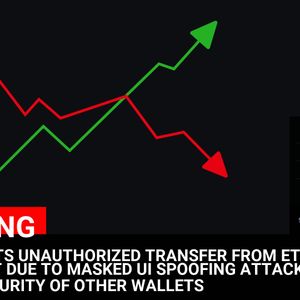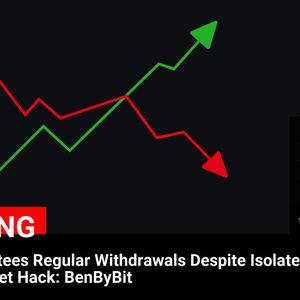Hold onto your hats, crypto enthusiasts! The digital currency world is buzzing with news from Nigeria, where the government is demanding a jaw-dropping $81 billion penalty from Binance. Yes, you read that right – $81 billion ! This massive fine is for alleged tax violations and operating without proper registration, escalating the legal troubles for one of the world’s largest crypto exchanges. Let’s dive into the details of this developing saga and understand what it means for Binance and the broader crypto landscape, especially concerning crypto regulation . What’s Behind the Staggering Binance Nigeria Penalty? The Nigerian government is coming down hard on Binance, accusing the exchange of serious financial misconduct. The core of the issue revolves around allegations of crypto tax violations and illegal foreign exchange trading. Here’s a breakdown of the charges: Unregistered Operations: Nigerian authorities claim Binance operated within the country without the necessary registration, essentially bypassing local regulations designed to oversee financial institutions. Economic Losses: A significant portion of the penalty, a staggering $79.5 billion, is attributed to alleged economic losses suffered by Nigeria due to Binance’s operations. The specifics of how these losses were calculated are still emerging, but it points to accusations of undermining the Nigerian economy through illicit financial flows. Tax Evasion: Adding to the financial strain, Binance faces a $2 billion tax fine, directly linked to the alleged crypto tax violations . This charge suggests a failure to comply with Nigerian tax laws applicable to businesses operating within the country. Illegal Forex Trading: The charges also include engaging in illegal foreign exchange trading. This is a particularly sensitive issue in Nigeria, where the government closely manages foreign exchange to stabilize its currency. According to reports from DL News, this isn’t Binance’s first brush with Nigerian law. The exchange is already facing two other cases in the country, including serious allegations of money laundering and tax evasion. This latest development significantly amplifies the Binance legal trouble in Nigeria, raising questions about the exchange’s operational practices in the region. [img src=”image-url-binance-nigeria.jpg” alt=”Binance Nigeria Legal Issues”] Binance’s Defense: Denying All Allegations Binance, for its part, is vehemently denying all the accusations. The exchange maintains it operates within the legal frameworks of all jurisdictions where it has a presence. Their official statements emphasize a commitment to compliance and cooperation with regulatory bodies globally. However, the specifics of their defense strategy in the Nigerian case are yet to be fully disclosed. The upcoming trial, set to begin on Monday, will be a crucial platform for Binance to present its side of the story and challenge the hefty Binance Nigeria penalty . Why is Nigeria Taking Such a Hard Line on Crypto Exchanges? Nigeria’s aggressive stance against Binance reflects a broader global trend of increased regulatory scrutiny towards cryptocurrency exchanges. Several factors might be contributing to Nigeria’s tough approach: Economic Stability: Like many developing nations, Nigeria is concerned about the potential impact of unregulated cryptocurrency flows on its economic stability. Concerns about capital flight and currency destabilization are paramount. Combating Financial Crime: Cryptocurrencies, while offering innovation, are also perceived as potential tools for money laundering, terrorism financing, and other illicit activities. Governments worldwide are keen to prevent their financial systems from being exploited for criminal purposes. Protecting Investors: The volatile nature of the crypto market and the lack of robust consumer protection mechanisms are causing regulatory unease. Nigeria, like other nations, may be seeking to protect its citizens from potential financial risks associated with unregulated crypto exchange fines and operations. Revenue Generation: Taxation is a key driver for governments globally. Ensuring that cryptocurrency businesses pay their fair share of taxes is becoming a priority, and Nigeria’s pursuit of crypto tax violations against Binance could be seen in this light. What Does This Mean for the Future of Crypto in Nigeria? Nigeria has one of the highest rates of cryptocurrency adoption in Africa. The ongoing legal battle between Nigeria and Binance could have significant implications for the future of crypto in the country. Here’s what to consider: Increased Regulation: This case will likely accelerate the push for clearer and stricter Nigeria crypto regulation . The government may introduce new licensing requirements, compliance standards, and oversight mechanisms for cryptocurrency exchanges operating within its borders. Impact on Crypto Adoption: While stringent regulations might initially dampen enthusiasm, they could also foster a more stable and trustworthy crypto environment in the long run. Clear rules can attract legitimate businesses and investors, ultimately promoting sustainable growth. Precedent Setting: The outcome of the Binance case could set a precedent for how other African nations approach the regulation of cryptocurrency exchanges. It will be closely watched by governments and crypto businesses across the continent. Investor Confidence: The legal uncertainty surrounding crypto in Nigeria could impact investor confidence in the short term. However, a well-defined regulatory framework could eventually boost confidence by providing clarity and reducing risks. Actionable Insights: Navigating the Evolving Crypto Regulatory Landscape For crypto users and businesses operating in or considering entering the Nigerian market, here are some actionable insights: Stay Informed: Keep a close watch on regulatory developments in Nigeria and other jurisdictions. Regulations are evolving rapidly, and staying updated is crucial for compliance and informed decision-making. Prioritize Compliance: For crypto businesses, robust compliance programs are no longer optional – they are essential. Engage with legal experts to ensure adherence to local regulations and international standards. Advocate for Clear Regulation: Engage in constructive dialogue with regulators and policymakers. Advocating for clear, balanced, and innovation-friendly regulations can help shape a positive future for the crypto industry. Risk Assessment: Understand the regulatory risks associated with operating in different jurisdictions. Conduct thorough risk assessments and develop mitigation strategies. Conclusion: A Defining Moment for Crypto Regulation The $81 billion penalty sought by Nigeria against Binance is a dramatic escalation in the ongoing global conversation about crypto regulation . This case underscores the growing pressure on cryptocurrency exchanges to comply with national laws and the increasing assertiveness of governments in overseeing the digital asset space. As the trial unfolds, the crypto world will be watching closely, as the outcome could have far-reaching implications for the industry’s future trajectory in Nigeria and beyond. The sheer size of the Binance Nigeria penalty sends a clear message: governments are serious about regulating crypto, and non-compliance comes at a steep price. To learn more about the latest crypto market trends, explore our article on key developments shaping Bitcoin price action.



















